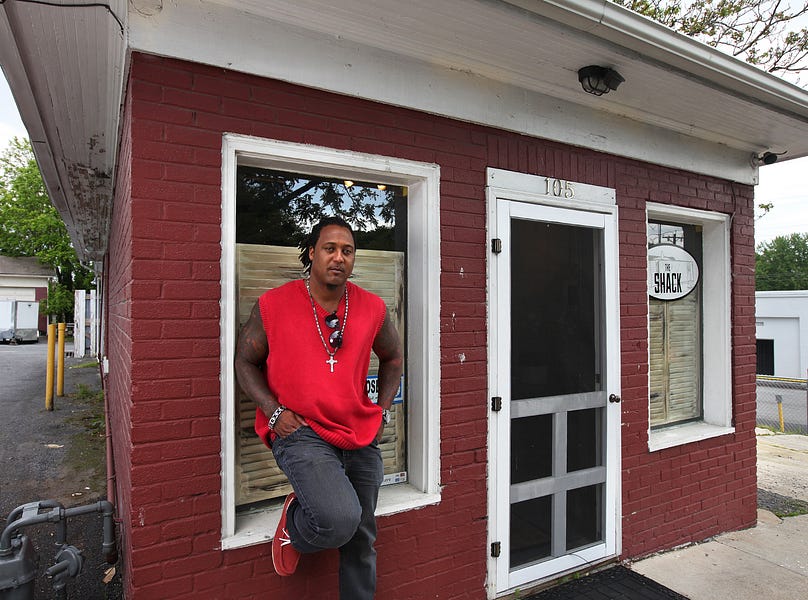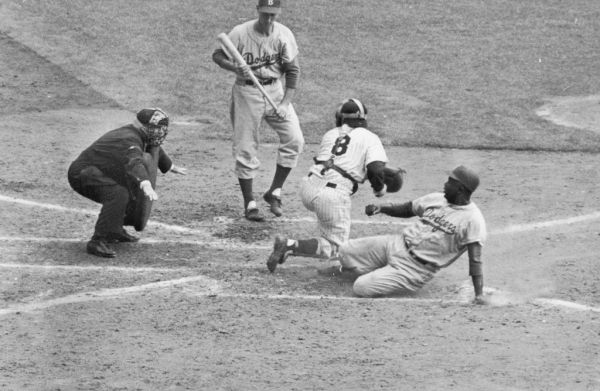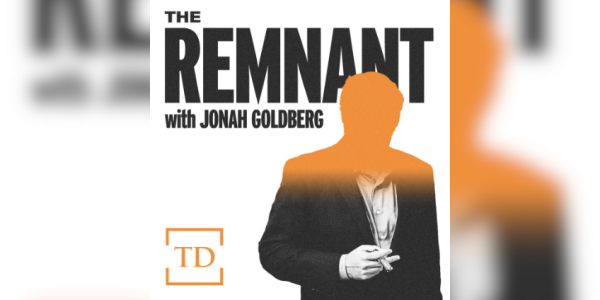Yesterday, Politico’s Tim Alberta published a long and fascinating reported piece asking, “Is this the last stand of the ‘law and order’ Republicans?” The central thesis of his piece is that it is politically safe—for now—for Republican politicians to circle their wagons around the party’s traditional law and order message, but the public is rapidly moving away from the party. Here’s Alberta:
But safe and sustainable are two different things. As with so many issues, the ground beneath the GOP has been gradually shifting on questions of racial justice. Perhaps it’s the demographic transition of the electorate, or the greater digital proximity voters have to events that long went unseen. Whatever the cause, this shift has threatened further electoral consequences for a party that is already out of step with the center on a number of cultural issues. That was before a white officer pinned George Floyd’s neck to the ground for nearly nine minutes. One thing is clear: There is nothing gradual about what’s happened since.
An NBC/Wall Street Journal poll released Sunday found that “Americans by a 2-to-1 margin are more troubled by the actions of police in the killing of George Floyd than by violence at some protest.” A survey for USA Today last week showed white Americans’ favorable impressions of police declining by double-digits week over the week. Most notably, a Monmouth poll released June 2—conducted in the days after Floyd’s killing—showed, for the first time, that a majority of Americans (57 percent) and a plurality of whites (49 percent) believe police are more likely to use excessive force against African Americans. This represents a tectonic shift in public opinion: After Eric Garner was killed by New York City police in the summer of 2014, Monmouth found that 33 percent of Americans believed the black community was more likely to be abused by police; among whites, that number was just 26 percent.
There’s already an enormous amount of conversation about what a post-Trump Republican party will look like. At this point it’s impossible to project, and the answer will depend greatly on the outcome of the 2020 election. But we can argue now what it should look like, and please allow me to make a modest proposal —replace the “law and order” GOP with “Bill of Rights” Republicans. It’s an approach that will shore up the constitutional order and help provide a legal salve to many of the open wounds of police brutality and racial injustice.
I’ve been a constitutional litigator for the vast majority of my legal career, and I’ve long noticed a fascinating political divide regarding the Bill of Rights. Conservatives consistently seek a robust First and Second Amendment jurisprudence and have less interest in the rights of criminal defendants. Progressives, by contrast, emphasize amendments four through eight—the criminal justice amendments. Outside of the tiny civil libertarian bar (actual footage of a civil libertarian rally below), it’s hard to find a movement that seeks robust enforcement of the entire foundational American social compact, from top to bottom.

It’s time for that to change. As I wrote in my Sunday newsletter, one doesn’t have to agree with progressive social and political theories like intersectionality or implicit bias to agree to race-neutral policy changes that double-down on our constitutional order and have the effect of protecting America’s most marginalized communities from state abuses of power.
What would a Bill of Rights Republican stand for? Some elements would remain familiar, including continued defense of free speech, religious liberty, and the right to keep and bear arms. But the GOP’s criminal justice posture should put equivalent value on, for example, due process, unreasonable searches and seizures, excessive fines, and the remaining protections for individual liberty in the middle section of the Bill of Rights. Here’s a partial glimpse of what it would look like in practice:
1. End or substantially reform qualified immunity. Yes, I know I’m a broken record on this point. I’ve written and spoken about it time and time again, but the entirely judge-made doctrine that prevents countless victims of civil-rights violations from obtaining compensation for state constitutional violations not only denies citizens justice, it creates an atmosphere of impunity in state officials—and not just police.
That’s exactly why there now exists a broad coalition of progressives, libertarians, and religious conservatives (like my old employer, the Alliance Defending Freedom) who’ve jointly petitioned the Supreme Court to revisit the doctrine. While Justin Amash has teamed up with some Democrats to propose legislation eliminating qualified immunity, there is not yet a true political coalition to match the legal alliance. There should be.
2. Reform civil asset forfeiture and end “policing for profit.” Civil asset is a legal doctrine that allows police to seize property that was allegedly used in the commission of a crime. The property (including cash), once seized, is then typically used for the benefit of the police. How much property is seized? In 2014 the government took more money from citizens than burglars stole from crime victims. (The photograph that accompanies this newsletter features a man who had $17,550 confiscated after he was pulled over for having his car windows tinted too darkly.)
How does it work? Like this:
Under this practice, law-enforcement officials often engage in two separate punitive legal processes against criminal defendants. The first is the criminal prosecution itself, which can impose prison sentences and fines according to statutorily defined punishments. The second is often a civil action against the criminal defendant’s property. Yes, the government will file suit against trucks, cars, jewelry, boats, and cash — leading to absurd case captions like, say, Texas v. One Gold Crucifix — claiming that the property was used for criminal purposes and then seize that property under a lower, civil, burden of proof.
As a result, a defendant can often lose their property without ever being convicted of a crime. Even if convicted of a crime, they can face asset forfeiture that far, far exceeds the amount of any criminal financial penalty under applicable law.
If you prefer a visual presentation, the Institute for Justice has put together a short video that explains the system, its abuses, and the difficulty of tracking how all the seized property is used.
But policing for profit doesn’t stop with civil asset forfeiture. The Department of Justice’s 2015 report on the Ferguson, Missouri, police department exposed a police force that was required by the city to emphasize revenue generation over public safety. The results were profoundly oppressive and unjust:
The City’s emphasis on revenue generation has a profound effect on FPD’s approach to law enforcement. Patrol assignments and schedules are geared toward aggressive enforcement of Ferguson’s municipal code, with insufficient thought given to whether enforcement strategies promote public safety or unnecessarily undermine community trust and cooperation. Officer evaluations and promotions depend to an inordinate degree on “productivity,” meaning the number of citations issued. Partly as a consequence of City and FPD priorities, many officers appear to see some residents, especially those who live in Ferguson’s predominantly African-American neighborhoods, less as constituents to be protected than as potential offenders and sources of revenue.
Policing for profit often has an extraordinarily negative effect on the poor, and that effect increases when courts charge defendants escalating fines and fees for, yes, failure to pay previous fines and fees. Thanks to Radley Balko at the Washington Post, I ran across this fascinating NPR report on the way in which poverty magnifies the effect of petty crime:
In Augusta, Ga., a judge sentenced Tom Barrett to 12 months after he stole a can of beer worth less than $2.
In Ionia, Mich., 19-year-old Kyle Dewitt caught a fish out of season; then a judge sentenced him to three days in jail.
In Grand Rapids, Mich., Stephen Papa, a homeless Iraq War veteran, spent 22 days in jail, not for what he calls his “embarrassing behavior” after he got drunk with friends and climbed into an abandoned building, but because he had only $25 the day he went to court.
The common thread in these cases, and scores more like them, is the jail time wasn’t punishment for the crime, but for the failure to pay the increasing fines and fees associated with the criminal justice system.
A yearlong NPR investigation found that the costs of the criminal justice system in the United States are paid increasingly by the defendants and offenders. It’s a practice that causes the poor to face harsher treatment than others who commit identical crimes and can afford to pay. Some judges and politicians fear the trend has gone too far.
The rich often barely notice these fines (or can hire lawyers who help them escape traffic tickets or other small infractions). Poor citizens, by contrast, sometimes face catastrophic consequences that dig them even deeper into poverty and despair.
3. Roll back “no-knock” raids. The definition of a “no-knock” raid is straightforward and self-explanatory. A no-knock warrant allows the police to burst into your house or place of business without first announcing their presence. The experience for a homeowner is, to put it mildly, utterly terrifying. Police storm into the house, often late at night when you’re asleep, shouting loudly. If your dog charges the cops, they’ll sometimes shoot the animal immediately. Just imagine the immediate chaos and grief, and—sometimes—when the homeowner is armed, their Second Amendment rights will actually entitle them to engage in a shootout with the cops.
To be clear, I’m not arguing that no-knock raids should be banned entirely. There are times when it is prudent to take dangerous criminals by surprise. But there are roughly 20,000 no-knock raids per year, and many of them are driven not so much by a desire to save lives but rather by a desire to preserve evidence.
Moreover, judges can be remarkably lenient in approving no-knock warrants, sometimes based only on evidence that the target of the warrant may lawfully own a gun—creating a potentially-deadly penalty for exercising Second Amendment rights.
4. Rethink cash bail. On any given day, almost 500,000 sit in jail without being convicted for a crime. Pretrial confinement is designed to protect the public from violent offenders and to prevent flight, and it’s sometimes necessary for public safety. At the same time, however, jail populations are swelling with people who languish for months (or longer) simply because they can’t afford to pay bail.
They can’t work. They can’t take care of their children. They often suffer from the effects of overcrowding and poor medical care—and, again, they haven’t been convicted of a crime. Extended pretrial detention exerts immense pressure on the incarcerated individual, often triggering plea bargains merely to end or limit confinement.
The list above is hardly a complete statement of Bill of Rights-oriented reform, but it’s a start. And it’s a start that’s rooted in the text and moral purpose of the American Constitution. Moreover, there is ample evidence that the conservative movement is ready for this transition. Conservatives have taken the lead in prison reform (the joint work of the Texas Public Policy Foundation and Right on Crime helped transform Texas into a “national model for prison reform.”) President Trump signed the First Step Act, the first modern federal statute specifically designed to ease mass incarceration.
There’s an alphabet soup of conservative and/or libertarian organizations that support each measure above. I could be wrong, of course, but I’ve also noticed an extraordinary stirring in the Evangelical conscience this last week. I’ve corresponded with pastors and church leaders who are hungry not just for transformed hearts, but also for concrete ideas to ease injustice.
It’s worth emphasizing again that in the battle to change political minds, a Bill of Rights-focused conservative movement rests its core moral justification not in contentious cultural theories centered around intersectionality, critical race theory, or implicit bias, but rather in the simple American promise of extending the blessings of liberty to all its citizens. It hearkens back to the “new birth of freedom” promised by Abraham Lincoln in the Gettysburg Address.
It is unfortunate that in the last few days the public debate over police reform has been hijacked by the slogan—“defund the police.” Although activists have made clear that it’s to be taken seriously not literally, now that both Joe Biden and Bernie Sanders have rejected the concept (Sanders said he wants police to be “well-trained, well-educated, and well-paid”) perhaps there’s room for serious conversations to dominate the discourse. And when that conversation continues, conservatives can and should center their efforts not around “law and order” but around the Constitution the police have sworn to defend.
One last thing …
It’s a shame that our national traumas last weekend drowned out the news of a national triumph. I’m speaking of course of the first successful manned space launch from American soil in nine years. But before we can succeed, we must fail, and I had to chuckle that SpaceX could poke fun at its own failures. Enjoy:
Photograph of Mandrel Stuart, a former restaurant owner who had $17,550 confiscated by cops who pulled him over because his car windows were tinted too darkly, by Norm Shafer/For the Washington Post/Getty Images.






Please note that we at The Dispatch hold ourselves, our work, and our commenters to a higher standard than other places on the internet. We welcome comments that foster genuine debate or discussion—including comments critical of us or our work—but responses that include ad hominem attacks on fellow Dispatch members or are intended to stoke fear and anger may be moderated.
You are currently using a limited time guest pass and do not have access to commenting. Consider subscribing to join the conversation.
With your membership, you only have the ability to comment on The Morning Dispatch articles. Consider upgrading to join the conversation everywhere.